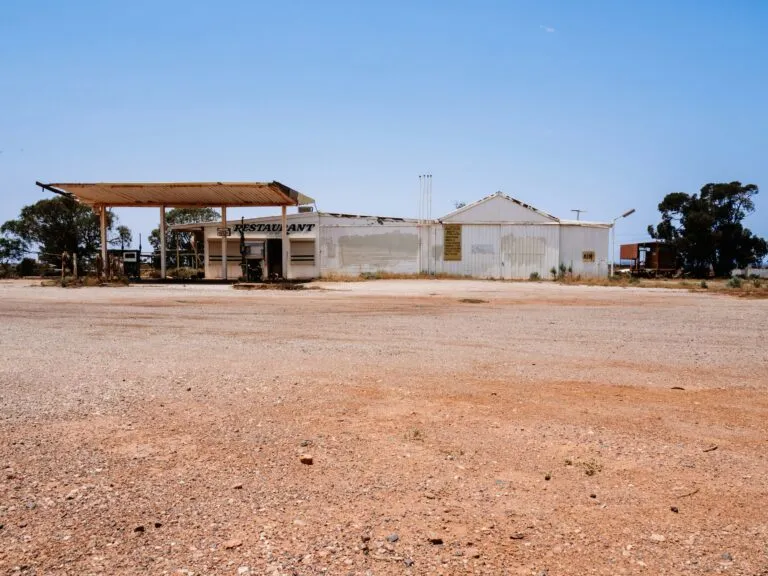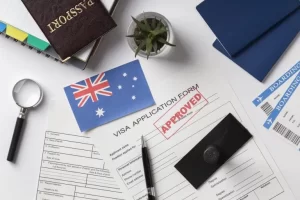Understanding the Recruitment Challenge
If you’re in the automotive sector, you already know that finding skilled diesel mechanics and auto electricians locally can feel like an uphill battle. The ageing workforce and lack of new apprentices entering the trades have created a perfect storm of staffing shortages. This situation is even more pronounced in regional and rural areas of Australia, where smaller and more dispersed populations amplify the skills gap.
The frustration is palpable. If you’re feeling overwhelmed by the shortage of available talent and the stress it places on your business operations, you’re not alone. Maybe you’ve even thought about hiring international workers but felt it was too complicated, risky, or just plain daunting. The good news? There are effective strategies to help you navigate these challenges and find the skilled workers you need.
In this article, we’ll cover:
- Best Search Strategies
- Best Resume Sorting Strategies
- Best Interview Strategies
- Best Salary Package Negotiating Strategies
- Success Stories
By the end of this article, you’ll have a comprehensive understanding of the best strategies for hiring mechanical trades, ensuring you can keep your business running smoothly and efficiently.
Best Search Strategies
When the local talent pool runs dry, it’s time to cast your net wider. Searching for trade candidates outside of Australia can be daunting, but it opens up a wealth of skilled workers ready to take on new opportunities. Here are some of the best strategies to find top-tier diesel mechanics and auto electricians internationally:
- Utilise Global Job Boards and Networks
Websites like LinkedIn, Indeed, and Glassdoor are invaluable resources. They allow you to post job listings that reach a global audience. Be specific in your job descriptions, detailing not just the skills required but also the benefits of working in regional Australia. Make sure you are clear that you are open to hiring internationally, and that you are willing to offer a sponsored work visa. - Partner with International Recruitment Agencies
International recruitment agencies can be your eyes and ears in different parts of the world. They have the expertise and networks to find candidates who meet your specific needs. These agencies can also handle initial vetting, saving you time and resources. - Attend Virtual Job Fairs and Industry Conferences
Geographical distances mean virtual job fairs and conferences can be significant platforms for connecting with international talent. These events can help you meet potential candidates and get a sense of their qualifications and experiences in real-time. - Leverage Social Media
Social media platforms, particularly professional networks like LinkedIn, can be powerful tools. Engage in relevant groups and forums where trade professionals gather. Share your job postings, participate in discussions, and build a presence that makes your business attractive to potential international hires.Consider paid posts and boosted posts that target regions and countries that have a reputation for producing the skilled trade that you are hunting for. - Collaborate with Industry Associations
Industry associations often have extensive networks and resources that can help you find skilled tradespeople. Your industry association probably has members that have already trodden the path you are considering. Make it known that you are considering hiring internationally and other members may be able to offer insights that can aid your recruitment efforts.
By adopting these strategies, you’ll expand your search far beyond local borders, tapping into a global talent pool brimming with potential.
Best Resume Sorting Strategies
Sorting through resumes can be overwhelming, especially when you’re looking for the right fit in a sea of applications. Here are some advanced strategies to help you identify the best candidates quickly and efficiently:
- Look Past the Formatting
This probably goes against every other recruitment drive you’ve done. But remember you are looking for candidates in a way you never have before. You need so many qualities for these candidates to achieve a work visa, assimilate into Australia and adapt to your business. In the past I would have rejected poorly formatted resumes with messy fonts and spelling mistakes. But if a candidate’s experience ticks enough boxes they maybe worth a second look. - Leverage Technology
You are time poor- because you are so short staffed. So use every tool you have available to filter your candidate pool. Asking for a video introduction, or even a recorded one way interview is a great way to quickly assess candidates in your own time. A candidate who takes the time to record an introduction video is committed enough to make the next round! - Assess Practical Experience
Look for resumes that highlight hands-on experience, especially those that detail specific projects or challenges the candidate has handled. This can give you insight into their practical skills and problem-solving capabilities. Candidates who can describe their role in complex projects or repairs are often more prepared for real-world scenarios. - Write a Questionnaire
Create a detailed questionnaire to accompany the resume submission. This can help you gather consistent information from all candidates and make it easier to compare their qualifications. Include questions that assess technical skills, problem-solving abilities, and willingness to relocate. For example:
-
-
- Describe a challenging repair or project you worked on. What was the issue, and how did you resolve it?
- What specific tools and equipment are you most proficient with?
- Have you worked in different cultural or geographical environments? How did you adapt?
- Are you willing to relocate to regional Australia, and what attracts you to this opportunity?
-
- Evaluate Adaptability
For international hires, adaptability is key. Look for candidates who have demonstrated an ability to work in diverse environments or have experience working abroad. This can indicate their potential to integrate smoothly into your team and adapt to Australian work culture.
By implementing these strategies, you can streamline the resume sorting process and focus on candidates who are not only technically proficient but also a good fit for your business.
Best Interview Strategies
Interviewing candidates, especially via video calls, requires a different set of skills and techniques. Here are some effective strategies to get the most out of your interviews:
- Prepare Structured Questions
Having a set of structured questions ensures that you cover all necessary topics and maintain consistency across interviews. It also makes it easier to compare candidates. Focus on both technical skills and behavioural traits. For instance, ask about specific repairs they’ve handled and how they approach problem-solving under pressure. - Use Psychological Techniques
Incorporate psychological interview techniques to get a deeper understanding of the candidate’s true abilities and fit. Ask situational and behavioural questions to see how they react under pressure and how they’ve handled challenges in the past. Questions like, “Can you describe a time when you had to solve an unexpected problem on the job?” can reveal a lot about their critical thinking and resilience. - Read Body Language
Even through a video call, body language can tell you a lot. Pay attention to eye contact, posture, and facial expressions. Confident candidates will maintain good eye contact and display positive body language. Nervous or evasive body language might indicate a lack of confidence or honesty. - Conduct Skills Assessments
Incorporate practical assessments into the interview process. This could be a technical task or a problem-solving exercise relevant to the job. It’s a great way to see how candidates apply their skills in real-time and under pressure. For example, you might ask a diesel mechanic to walk you through the steps they would take to diagnose a specific engine problem. - Encourage Questions
A good candidate will have questions about the role, the company, and the relocation process. Encourage this and pay attention to the quality of their questions—they can reveal how much research they’ve done and how serious they are about the opportunity. Questions about team structure, company culture, and job expectations show that the candidate is considering how they will fit into your business.You want the candidate to be interested in YOUR company, not just the chance to come to Australia. - Test for Cultural Fit
For international hires, cultural fit is crucial. Discuss scenarios that might occur in your workplace and ask how they would handle them. This helps you gauge their adaptability and how well they might integrate into your team. For instance, “How would you handle a situation where you need to work with a team that has different working styles than you are used to?”
By employing these interview strategies, you can gain a comprehensive understanding of each candidate’s skills, character, and potential fit within your team, ensuring you make well-informed hiring decisions.
Best Salary Package Negotiating Strategies
Negotiating a salary package for international candidates involves more than just agreeing on a number. It’s about creating a comprehensive offer that includes all necessary aspects to make the transition smooth and appealing. Here are the best strategies to package migration agent and visa fees into the salary package:
- Include Relocation Assistance
Offer a relocation assistance package that covers moving expenses, temporary housing, and initial setup costs. This helps alleviate the financial burden on the candidate and shows that you are committed to supporting their transition. - Cover Visa and Migration Agent Fees
Integrate visa and migration agent fees into the overall salary package. This can be done by offering to cover these costs upfront or by reimbursing the candidate after they have started working. Clearly outline how these costs will be managed to avoid any misunderstandings. - Provide a Signing Bonus
A signing bonus can be an attractive addition to a salary package. This bonus can help cover any initial expenses the candidate may incur and serves as an incentive for them to accept the offer and relocate. It’s a one-time payment that can make a significant difference. - Highlight Tax Benefits and Cost of Living
Educate candidates about potential tax benefits and the cost of living in Australia, particularly in regional areas. Often, the cost of living is lower in these areas compared to major cities, which can make a slightly lower salary go much further. Additionally, Australia’s tax system may offer benefits that aren’t available in the candidate’s home country, enhancing the overall value of the salary package. - Include Professional Development Opportunities
Incorporate opportunities for professional development into the salary package. This could include funding for further education, certifications, or training programs. Highlighting your investment in their career growth not only makes your offer more attractive but also shows your commitment to their long-term success within your company. - Be Transparent About Benefits
Clearly communicate all benefits that come with the role. This includes health insurance, retirement plans, and any other perks. Make sure the candidate understands the full value of the package, not just the base salary. Transparency builds trust and helps the candidate see the long-term benefits of joining your team. - Tailor the Package to Individual Needs
Flexibility is key. Tailor the salary package to meet the specific needs and concerns of the candidate. Some might value higher take-home pay, while others might prefer more comprehensive benefits or additional support with relocation. Understanding their priorities can help you craft a more compelling offer.
By using these strategies, you can create a salary package that not only meets the financial needs of international candidates but also makes them feel valued and supported in their new role.
Success Stories
Hearing about real-life successes can be incredibly reassuring and inspiring when you’re considering a new approach to hiring. Here’s a story of a business that overcame its staffing challenges through effective recruitment strategies:
Regional NSW Automotive Business
A logistics company in regional New South Wales was on the brink of closure due to a severe shortage of skilled diesel mechanics. They reached out for help, and within six weeks, we helped them recruit and migrate an entire team of highly skilled mechanics from Ghana who were working in Qatar. The new team members were not only technically proficient but also eager to integrate into the local community. Eighteen months later, the business is thriving, with increased productivity and a stable, growing customer base.
This success story illustrates how implementing the best recruitment strategies can transform a business. By looking beyond local borders and adopting a thorough and flexible approach, this company was able to find the skilled workers it needed to thrive.
Ready to Transform Your Hiring Process?
Hiring skilled diesel mechanics and auto electricians can be challenging, but with the right strategies, it’s entirely achievable. By expanding your search beyond local borders, leveraging advanced resume sorting techniques, and conducting insightful interviews, you can find the perfect candidates for your business.
Implementing these best practices will streamline your recruitment process and help you build a team that drives your business forward. The right candidates are out there, and with a thorough and flexible approach, you can overcome your hiring challenges and achieve long-term success.
By following our ultimate checklist, business owners and leaders can effectively navigate the process of hiring internationally.








